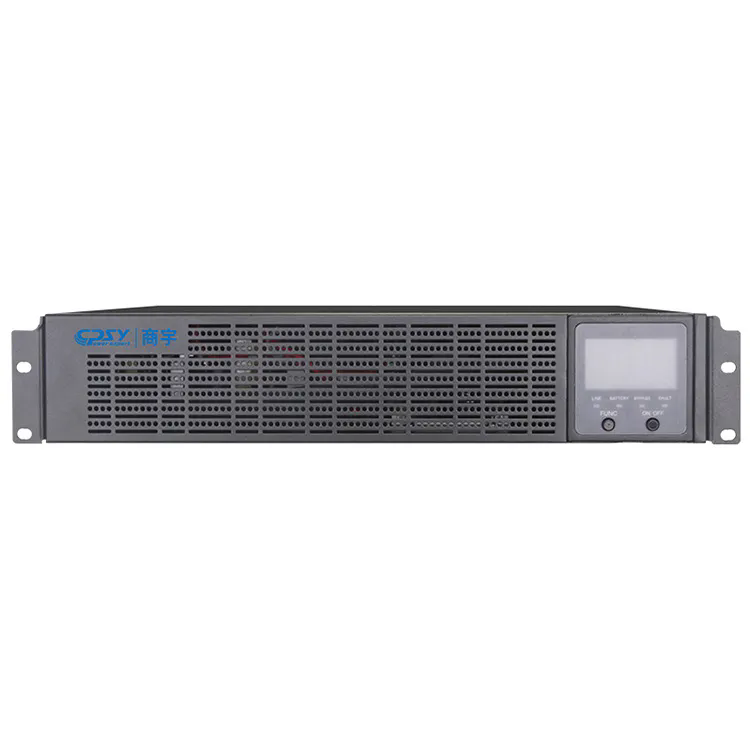Why Are Lithium-Ion UPS Systems the Future of Reliable Power Backup?
2024-10-26
Introduction: The Importance of Uninterruptible Power Supply (UPS) Systems
In today’s technology-driven world, uninterrupted power is critical for businesses, data centers, and even homes. Power outages can lead to data loss, downtime, and equipment damage, making UPS systems essential. While traditional UPS systems rely on lead-acid batteries, Lithium-ion UPS solutions are emerging as a more efficient and sustainable option. But what makes lithium-ion UPS systems so revolutionary?
What Is a Lithium-Ion UPS System?
A Lithium-Ion UPS (Uninterruptible Power Supply) system is a power backup solution that uses lithium-ion batteries instead of traditional lead-acid batteries to store energy. The system provides a seamless power transfer during outages or electrical disturbances, ensuring that connected equipment runs without interruption.
Why Are Lithium-Ion Batteries Better for UPS Systems?
Lithium-ion technology offers several advantages over the lead-acid batteries traditionally used in UPS systems. These benefits make lithium-ion UPS a superior, long-term solution for many industries.
1. Longer Battery Life
Lithium-ion batteries have a longer lifespan—typically lasting 8 to 10 years compared to the 3-5 years of lead-acid batteries.
This reduces maintenance costs and the need for frequent replacements, saving both time and money.
2. Faster Charging
Lithium-ion batteries recharge much faster, minimizing downtime between power outages.
This makes them ideal for mission-critical environments like hospitals, data centers, and industrial operations.
3. Compact and Lightweight Design
Lithium-ion batteries are smaller and lighter, making the UPS systems more compact.
This saves valuable space in equipment rooms and facilitates easier installation and mobility.
4. Higher Energy Density
Lithium-ion technology offers higher energy storage capacity in a smaller footprint.
This ensures that the UPS can provide longer runtimes even during extended outages.
5. Temperature Tolerance and Safety
Lithium-ion batteries perform well across a wider temperature range, reducing the need for specialized cooling systems.
Many systems feature advanced battery management systems (BMS) to monitor performance and ensure safety, preventing overcharging and overheating.
How Does a Lithium-Ion UPS System Work?
Power Supply Monitoring: The UPS monitors incoming electrical power.
Instant Switchover: If an outage or voltage dip occurs, the UPS instantly switches to battery power without interrupting connected devices.
Battery Management: The BMS ensures optimal performance, monitoring temperature, voltage, and charge levels to prolong battery life.
Automatic Recharging: Once normal power returns, the lithium-ion batteries quickly recharge, preparing the system for the next event.
Who Can Benefit from Lithium-Ion UPS Systems?
1. Data Centers and IT Facilities
Reliable power is essential to prevent downtime and protect data.
Lithium-ion UPS solutions reduce operational and maintenance costs for these high-demand environments.
2. Healthcare Facilities
Hospitals and clinics rely on UPS systems to ensure life-saving equipment continues to operate during power disruptions.
3. Manufacturing and Industry
Power loss in manufacturing can cause significant financial losses due to halted production. Lithium-ion UPS minimizes downtime and ensures smooth operations.
4. Smart Homes and Offices
As more homes adopt smart technology, a lithium-ion UPS provides consistent power for devices like routers, security systems, and home servers.
Are There Any Challenges to Adopting Lithium-Ion UPS Systems?
Higher Initial Cost: While lithium-ion systems are more expensive upfront, the long-term savings from reduced maintenance and longer battery life often outweigh the initial investment.
Recycling and Disposal: Lithium-ion batteries require special disposal methods, but advancements in battery recycling are helping to mitigate environmental concerns.
Compatibility with Existing Systems: Some organizations may need to upgrade their existing infrastructure to fully leverage lithium-ion technology.
Why Are Lithium-Ion UPS Systems the Future?
The growing demand for sustainable and efficient energy solutions is driving the adoption of lithium-ion UPS systems. As industries strive to reduce their carbon footprint and operational costs, lithium-ion technology offers a more reliable, durable, and eco-friendly alternative to traditional systems. With advancements in battery technology and decreasing production costs, lithium-ion UPS systems are quickly becoming the go-to choice for both commercial and residential use.
Conclusion: Is It Time to Upgrade to a Lithium-Ion UPS System?
Lithium-ion UPS systems represent a paradigm shift in power backup technology. With longer battery life, faster charging, compact design, and greater energy efficiency, they offer numerous benefits over traditional lead-acid systems. Although the initial cost may be higher, the reduced maintenance, lower total ownership cost, and improved performance make them a smart investment in the long run.
So, if you are looking for a future-proof power backup solution, the question isn’t if you should switch to a lithium-ion UPS system—it’s when.



